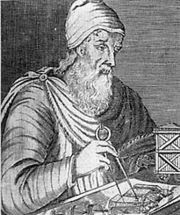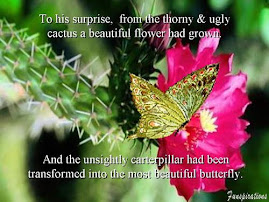duminică, august 31, 2008
Amazing GRACE
Amazing grace, how sweet the sound
That sav’d a wretch like me!
I once was lost, but now am found,
Was blind, but now I see.
’Twas grace that taught my heart to fear,
And grace my fears reliev’d;
How precious did that grace appear,
The hour I first believ’d!
Thro’ many dangers, toils and snares,
I have already come;
’Tis grace has brought me safe thus far,
And grace will lead me home.
The Lord has promis’d good to me,
His word my hope secures;
He will my shield and portion be,
As long as life endures.
Yes, when this flesh and heart shall fail,
And mortal life shall cease;
I shall possess, within the veil,
A life of joy and peace.
The earth shall soon dissolve like snow,
The sun forbear to shine;
But God, who call’d me here below,
Will be forever mine.
John Newton, Olney Hymns (London: W. Oliver, 1779)
"Amazing Grace" is a well-known Christian hymn by Englishman John Newton and which first appeared in print in Newton's Olney Hymns (1779).
John Newton, the author of the lyrics to Amazing Grace, was born in 1725 in Wapping, England.[1] Despite the powerful message of "Amazing Grace," Newton's religious beliefs initially lacked conviction; his youth was marked by religious confusion and a lack of moral self-control and discipline.[1]
After a brief time in the Royal Navy, Newton began his career in slave trading. The turning point in Newton's spiritual life was a violent storm that occurred one night while at sea. Moments after he left the deck, the crewman who had taken his place was swept overboard. Although he manned the vessel for the remainder of the tempest, he later commented that, throughout the tumult, he realized his helplessness and concluded that only the grace of God could save him. Prodded by what he had read in Thomas à Kempis' Imitation of Christ, Newton took the first step toward accepting faith.[1]
These incidents and his 1750 marriage to Mary Cartlett changed Newton significantly. On his slave voyages, he encouraged the sailors under his charge to pray. He also began to ensure that every member of his crew treated their human cargo with gentleness and concern. Nevertheless, it would be another 40 years until Newton openly challenged the trafficking of slaves.[1]
Some three years after his marriage, Newton suffered a stroke that prevented him from returning to sea; in time, he interpreted this as another step in his spiritual voyage. He assumed a post in the Customs Office in the port of Liverpool and began to explore Christianity more fully. As Newton attempted to experience all the various expressions of Christianity, it became clear that he was being called to the ministry. Since Newton lacked a university degree, he could not be ordained through normal channels. However, the landlord of the parish at Olney was so impressed with the letters Newton had written about his conversion that he offered the church to Newton; he was ordained in June 1764.[1]
In Olney, the new curate met the poet William Cowper, also a newly-born Christian. Their friendship led to a spiritual collaboration that completed the inspiration for "Amazing Grace," the poem Newton most likely wrote in Kineton, Warwickshire[citation needed] around Christmas 1772.[1] The lyrics are based on his reflections on an Old Testament text he was preparing to preach on, adding his perspective about his own conversion while on his slave ship, the Greyhound, in 1748.
Newton's lyrics have become a favorite for Christians, largely because the hymn vividly and briefly sums up the doctrine of divine grace. The lyrics are based on 1 Chronicles 17:16-17, a prayer of King David in which he marvels at God's choosing him and his house. Newton apparently wrote this for use in a sermon he preached on this passage on New Year's Day 1773, and for which he left his sermon notes, which correspond to the flow of the lyrics[2]. (He entitled the piece "Faith's review and expectation.")
The song has also become known as a favorite with supporters of freedom and human rights, both Christian and non-Christian, in part because many assume it to be Newton's testimony about his slave trading past.
The hymn was quite popular on both sides in the American Civil War.
The association with bagpipes is relatively modern; for over a century, the tune was nearly forgotten in the British Isles until the folk revival of the 1960s began carrying traditional musicians back and forth between the British Isles and the United States (where "Amazing Grace" had remained a very popular hymn). It was little known outside church congregations or folk festivals until Arthur Penn's film Alice's Restaurant (1969), in which Lee Hays of The Weavers leads worshipers in singing "Amazing Grace."
Sursa: Wikipedia
Be Thou My Vision
Be Thou My Vision
Be Thou my Vision, O Lord of my heart;
Naught be all else to me, save that Thou art.
Thou my best Thought, by day or by night,
Waking or sleeping, Thy presence my light.
Be Thou my Wisdom, and Thou my true Word;
I ever with Thee and Thou with me, Lord;
Thou my great Father, I Thy true son;
Thou in me dwelling, and I with Thee one.
Be Thou my battle Shield, Sword for the fight;
Be Thou my Dignity, Thou my Delight;
Thou my soul’s Shelter, Thou my high Tower:
Raise Thou me heavenward, O Power of my power.
Riches I heed not, nor man’s empty praise,
Thou mine Inheritance, now and always:
Thou and Thou only, first in my heart,
High King of Heaven, my Treasure Thou art.
High King of Heaven, my victory won,
May I reach Heaven’s joys, O bright Heaven’s Sun!
Heart of my own heart, whatever befall,
Still be my Vision, O Ruler of all.
Dallan Forgaill (translated from the Irish by
Mary E. Byrne, Versified by Eleanor H. Hull)
Be Thou My Vision is a traditional Christian hymn, which can be traced to Ireland but is now sung in English-speaking churches around the world.
The text and its history
The text (Rop tú mo baile) is often attributed to Dallan Forgaill in the 8th century; in any case, this text had been a part of Irish monastic tradition for centuries before the hymn itself was written. It was translated from Old Irish into English by Mary E. Byrne in “Eriú," Journal of the School of Irish Learning, in 1905. The English text was first versified by Eleanor H. Hull in 1912[1], and this version of the lyrics is the most common. However, slight variations of these lyrics are sometimes seen. The first verse of Hull's version follows:
Be Thou my Vision, O Lord of my heart;
Naught be all else to me, save that Thou art
Thou my best Thought, by day or by night,
Waking or sleeping, Thy presence my light.
Thus, the English translation of the hymn itself is fairly recent and the Elizabethan vocabulary and structure is somewhat an anachronism. Be Thou My Vision has become the quintessential Irish hymn in English-speaking churches and is often sung around St. Patrick's Day.
Despite its traditional nature and the seemingly archaic quality of the text, Be Thou My Vision has become a popular song performed and composed by Ginny Owens. Van Morrison also performs this song on his album Hymns to the Silence, and Pedro the Lion on The Only Reason I Feel Secure. (Wikipedia)
sâmbătă, august 30, 2008
vineri, august 29, 2008
joi, august 28, 2008
Citate memorabile

Maia Morgenstern
"Daca ne-am naste stiind totul, ce am mai face cu tot timpul pe care trebuie sa-l petrecem pe pamant? "
Nelly
miercuri, august 27, 2008
Praise to the Lord, the Almighty
Praise to the Lord, the Almighty
Praise to the Lord, the Almighty
The King of creation
O my soul, praise Him
For He is thy health and salvation
All ye who hear, now to His temple draw near
Praise Him in glad adoration
Praise to the Lord
Who o'er all things so wondrously reigneth
Shelters thee under His wings
Yea, so gently sustaineth
Hast thou not seen how thy desires e'er have been
Granted in what He ordaineth
Chorus:
Hallelujah, hallelujah, hallelujah, hallelujah
Praise to the Lord
Who doth prosper thy work and defend thee
Surely His goodness and mercy here daily attend thee
Ponder anew what the Almighty can do
If with His love He befriend thee
Praise to the Lord, O let all that is in me adore Him
All that hath life and breath
Come now with praises before Him
Let the 'amen' sound from His people again
Gladly for'ere we adore Him
Hymn # 444
Lutheran Worship
Author: Ernewertes Gesangbuch
Tune: Lobe Den Herren
1st Published in: 1665
marți, august 26, 2008
luni, august 25, 2008
Evrika!

Savantul grec Arhimede (în greacă Αρχιμήδης Arhimedes; n. aprox. 287 î.Hr. în Siracusa, atunci colonie grecească, d. 212 î.Hr.) a fost unul dintre cei mai de seamă învăţaţi ai lumii antice. Realizările sale se înscriu în numeroase domenii ştiinţifice: matematică, fizică, astronomie, inginerie şi filozofie. Carl Friedrich Gauss considera că Arhimede şi Isaac Newton au fost cei mai mari oameni de ştiinţă din întreaga istorie a civilizaţiei umane.
Se povesteste ca Arhimede a primit de la regele Hieron al Siracuzei sarcina de a stabili daca nu cumva in coroana executata de un mester s-a adaugat argint in loc de aur. Solutionarea acestei probleme l-a preocupat , dar fara succes, mai mul timp pe Arhimede pana cand odata, cufundandu-se intr-o baie plina pana la margini, a observat ca s-a revarsat atata apa cat a fost dezlocuita de corpul sau, care, in acelasi timp, i s-a parut ca este impins spre suprafata apei cu o oarecare forta.
Intuind numaidecatcum sa rezolve problema , Arhimede a iesit din baie alergand prin casa entuziasmat: "Evrika, evrika!" ("Am gasit, am descoperit!") - si intr-adevar, experienta aceasta prozaica (dar nu numai ea) i-a permis savantului sa introduca atunci, pentru prima data in stiinta, notiunea de greutate specifica a corpurilor si sa descopere principiul fundamental al hidrostaticii , pe baza carora a putut gasi solutia problemei ce l-a framantat vreme indelungata.
În principiu legea lui Arhimede este următoarea: „Un corp scufundat într-un lichid sau gaz este împins ascendent pe verticală cu o forţă egală cu greutatea volumului de lichid sau gaz dislocat”. Atunci când forţa determinată de presiunea lichidului este mai mare decât greutatea corpului acestea pluteşte, iar atunci când cele 2 forţe sunt egale obiectul ramâne în echilibru.
Surse: Wikipedia si "Caleidoscop matematic" de V. Bobancu
FINISH STRONG!

In my 63 years on this earth, I have come to realize that the difference in success or failure is not chance, but choice. Because when adversity strikes, it's not what happens to us, but how we react to what happens that will determine our destiny.
And that's what this inspirational 3 minute movie is all about. The title is Finish Strong. So turn up your speakers and click on the link below. It will make your day!
http://www.finishstrongmovie.com/
Live with Passion,
Mac Anderson
marți, august 12, 2008
The Godly Woman

by Charo & Paul Washer
"Before a girl's turn came to go in to King Xerxes, she
had to complete twelve months of beauty treatments
prescribed for the women, six months in oil of myrrh and
six with perfumes and cosmetics. And this is how she
would go to the king..." Esther 2:12-13
I have always been amazed at the kind of preparation
that the future queen Esther had to go through before
she was able to come before King Xerxes. Would
any of us want to go through twelve months of beauty
treatments before meeting the man of our dreams? Probably
not, but then again, imagine the possibilities. One year set
aside for one sole purpose - becoming all you can be for the
one you love the most. Precious time to cultivate beauty, to
make an investment in education and etiquette, to strengthen
virtue, and build character.
The preparation of Esther reminds me of that 
precious time between the awakening of desire in a young
woman.s heart to share her life with a mate and the
moment she walks down the aisle. For many, this time of
preparation is seen as nothing more than a time of waiting.
Single women often see themselves as sitting on the shelf
while life passes them by, or as sitting on the bench while
others play the game. They do not realize that they are
wasting the most important time of their lives, they are
robbing themselves of great joy and reward, they are
robbing their future husbands of a more virtuous woman,
and they are robbing God of a servant through whom He
desires to do great things.
As Esther had to be prepared before she could be queen
of an entire realm, so the woman must be prepared before
she can embark on one of the most important and difficult
callings in life - marriage and motherhood. Esther had to
learn the ways of the kingdom to which she belonged, she had
to learn the manners of court life, the intellectual, emotional
and spiritual challenges of high position. To put it simply,
Esther had to be transformed from a young lady into a queen
before she could wear the title and fulfill the role. In the same
way, the single Christian woman must learn the ways of the
Kingdom of Heaven before she ever unites with the one that
God is preparing for her.
She must be prepared intellectually,
emotionally and spiritually, not by court attendants in
some pagan temple, but by God Himself, His Word, and by
other godly women who have been prepared before her.
Singleness is not a waste of time or a sitting on the sidelines,
but a time that God has set aside especially for the
woman, to make her into what He wants her to be, and to use
her in ways that just might be impossible after marriage. Singleness
is a time in which a woman is to cultivate the virtues that
pertain to being a woman of God, so that she can offer to her
future husband and the world something more than just a
pretty face.
 Remember in your singleness that you are not the only
Remember in your singleness that you are not the only
one single, but your future husband is passing through the
same stage as you. Would it not be a terrible thing to finally
meet the man who is to become your husband only to find
out that he has used his singleness to serve God and to prepare
himself to be a better husband for you. And yet you did
not use the freedom of your singleness to serve the Lord, nor
did you take advantage of the training that God offered you?
Would it not also be a terrible thing to realize that your
husband spent his days as a single man praying daily for your
needs and the work of God in your life, while you neither
prayed for him, nor responded to the grace of God that was
given you as a result of his prayers.
It is a wonderful thing when God blesses a woman with a
husband. That special someone who is .just perfect. for her
in that he has been carefully and thoughtfully designed by
God to be united as one with her. It is such a joy for the
woman to look back and remember how God enabled her to
wait on Him and that He was faithful to bless. It is still an even
greater joy for her to know that her time as a single woman
was also a time of seeking God and being faithful to Him and
His purpose. That she did not for one moment wish to flee
that state, but desired only to trust in God and wait upon His
gracious sovereignty.
By no means is it a tragedy to be a single Christian woman,
but the way of the world has once again infiltrated Christianity
with the false idea that it is. One of the greatest lies is that
if you do not .have someone. or are not .actively looking.,
there is something wrong with you. Another lie is that the
single woman should be dating around as though looking for
a husband were the same as shopping in a mall. Still another
even stronger lie is that the single woman should be giving her
affections away indiscriminately so that she may be more .experienced
. and know what to do when she finally finds the
man of her choice.

My dear Christian, it is a lie and an
affront to God to say that experience is the best teacher, when
in fact it is God who is the best teacher, and though the
world.s motto is .live and learn,. the Bible.s advice is .learn
and live.. You do not need to be experienced, you only need
to be knowledgeable of what God has said and obedient to it.
You should not be looking for the man of your choice, but
should be waiting on the man of God.s choice. And when he
comes, it will not be past experiences that will make your
marriage work, but past chastity, purity, and godliness. We
should hide our faces from the ways and experiences of this
wicked world and look upon only those things that God has
placed in the path He has prepared for us.
God knows exactly what you need and He even knows
the desires of your heart better than you do. God loves
surprises. He does not want you to be looking for your
husband, He wants to bring him to you, and probably at a
time you least expect it. If you disobey this advice, as so
many other women before you, and take it upon yourself
to look for a mate, you may find someone, but chances are
that someone you find will not be the right one.
As women, our nature desires the company and companionship
of a man. This is from God and therefore good.
But at the same time, we are wrong to think that death will be
the result if this need is not fulfilled. Needing another as a
companion is not like needing to take your next breath of air.
That is, you can survive without companionship, at least until
God has done His perfect work in you. Remember the Scripture,
.God is faithful; He will not let you be tempted beyond
what you can bear.. (I Corinthians 10:13)
I have found that there are two primary reasons why
someone .desperately. needs someone else. First of all, it is
because they do not know God as they should. Is God not
the God of all comfort? Is not Christ the exalted Lord who
fills all things everywhere? Then why do we complain about
how empty and alone we feel? Could it be that God extends
our time of singleness so that we might find our life in Him
and learn to be complete in Him? If we seek to be married
because we feel that a husband will fill our lives or will in some
way make us complete, we will be sorely disappointed in our
marriage.
No man, no matter how Christ-like could ever take 
the place of God in our lives, to think such a thing is pure
idolatry. If we are not filled by God now and complete in
Christ in the present, then not even a marriage made in heaven
will be able to change our emptiness.
The second reason for desperately needing someone in
our lives is plain selfishness. When we need someone in order
to feel loved, or when we need someone so that our feelings of
loneliness might dissipate, then we are wanting marriage for
all the wrong reasons. Marriage should not be looked upon
as an opportunity to have our needs met, but as an opportunity
to meet the needs of another. If we have not learned to
take our own needs to God, then we will probably overwhelm
our husbands with our own needs and be unaware of his.
I have known Christian women who spent their days consumed
with their own needs and constantly lamenting about why
God had not brought someone into their life. But why should
God entrust a godly man to a woman that is absorbed in
herself and her own needs, and does not use the freedom of
her singleness to serve God and prepare herself for His purposes?
Such a woman would have little to offer a godly husband!
My dear friend, being single, like being married should be
considered a very special and enjoyable time in the providence
of God.
It should not be considered a mere circumstance or
a curse from which one should try desperately to flee. Being
single is a time to learn of God and of ourselves, a time to
discover who we are in Christ, and to grow in Christlikeness.
It is a time to be zealous for good works and involved in
ministry to others. Being single has a magic of its own that
should be enjoyed in its time because once passed it may not
return. There is nothing quite so sad as a woman now married
who regrets what she could have been and done with her 
life while single. All was lost for the sake of hurrying to be
married without consideration for the plan or work of God.
Every season in life has a beauty and wonder of its
own. My prayer for all single Christian women is that they
might enjoy their time in spite of the lies of the world. That
they might be demanding and not settle for anything less
than the perfect will of God. That they might wait patiently
on God who is the giver of every good and perfect gift.
That they might be like Esther, using whatever time God
deems necessary to make them beautiful on the inside and
out.
( An article first published in
HeartCry magazine Volume 3, January 1998)



























